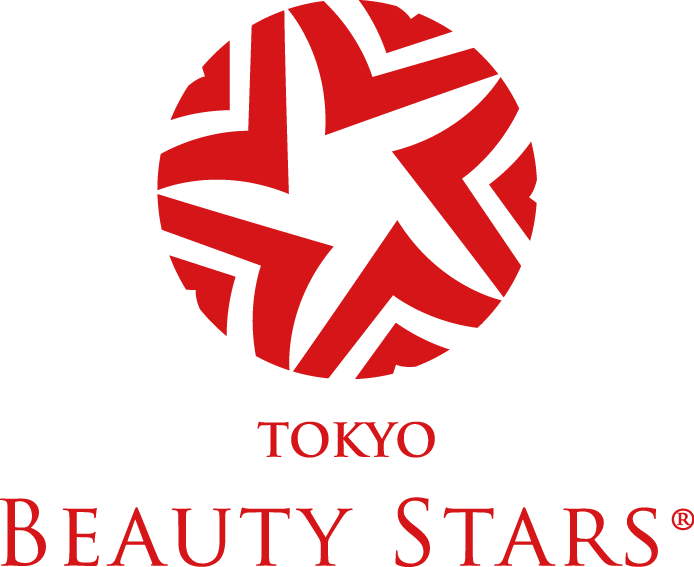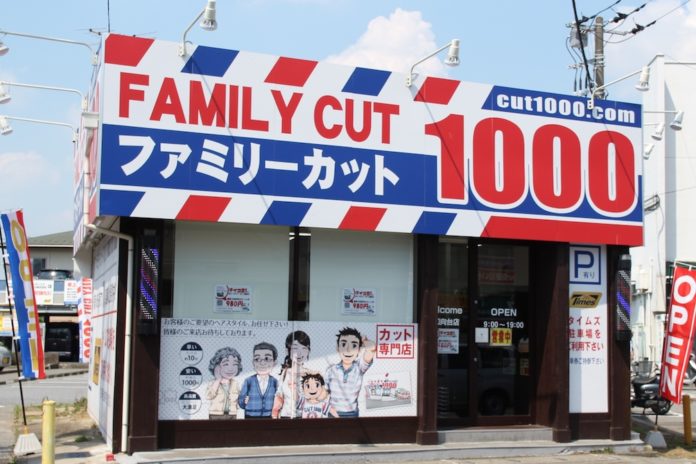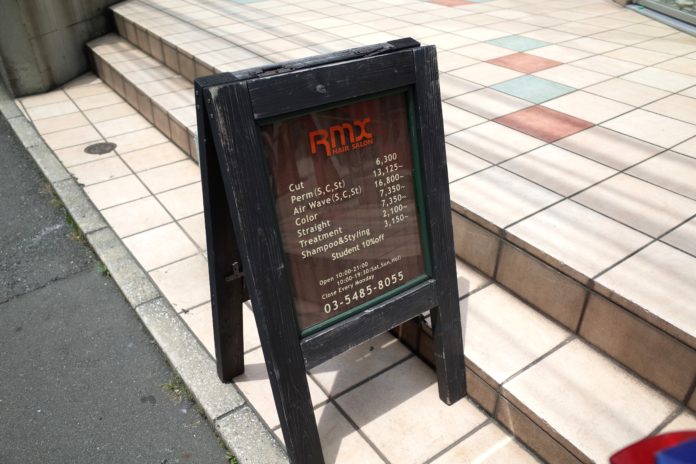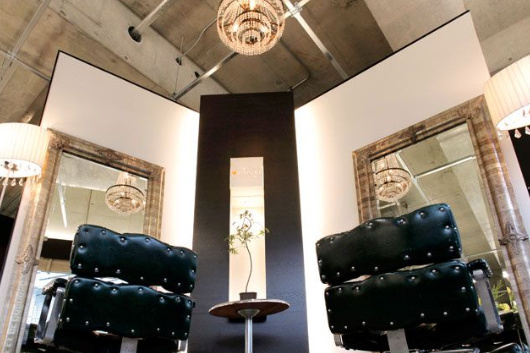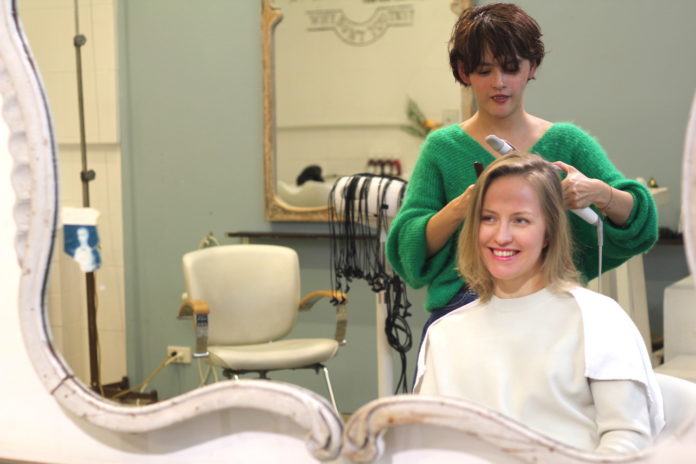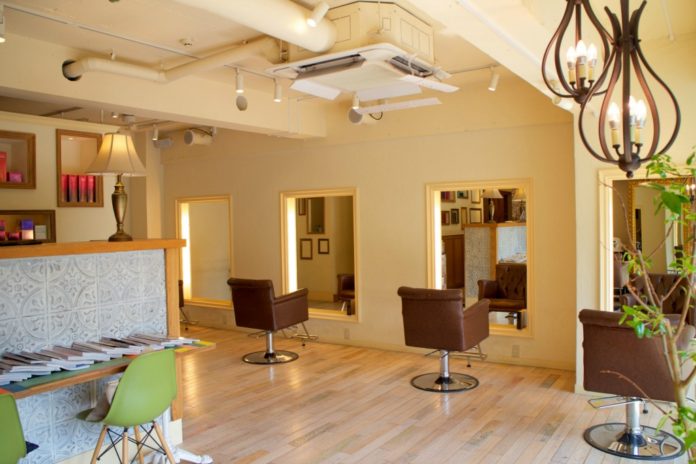Trying a new salon anywhere can be stressful, but it’s infinitely more so in a foreign language. Whether you’re a tourist looking for a unique experience or you’re here for the long-run, use this conversation guide to help make your trip to a Japanese salon go as smoothly and as stress-free as possible.

Anyone who has ever been to Japan has likely noticed how incredibly beautiful most people’s hair is. While this may be due in part to good genes, it’s much more likely that these fashionable locals frequent a good salon. The salons of Japan are some of the most technologically advanced in the world, and the staff members pride themselves on their superior technique, exceptional customer service, and that special Japanese hospitality (おもてなし, omotenashi) not available anywhere else.
The basic services available in Japanese hair salons (美容院, biyo̅in) include: shampoo, haircut, blow dry, hair color, perm, straightening, conditioning treatment, extensions, style setting, make-up, and more. While these may be offered in most countries, the experience of a visit to a Japanese salon is incomparable . That being saidHowever, many people visiting Japan avoid this luxurious experience despite wanting to try it simply because of the language barrier. Worrying about communication takes the fun out of an experience that is supposed to relaxing.
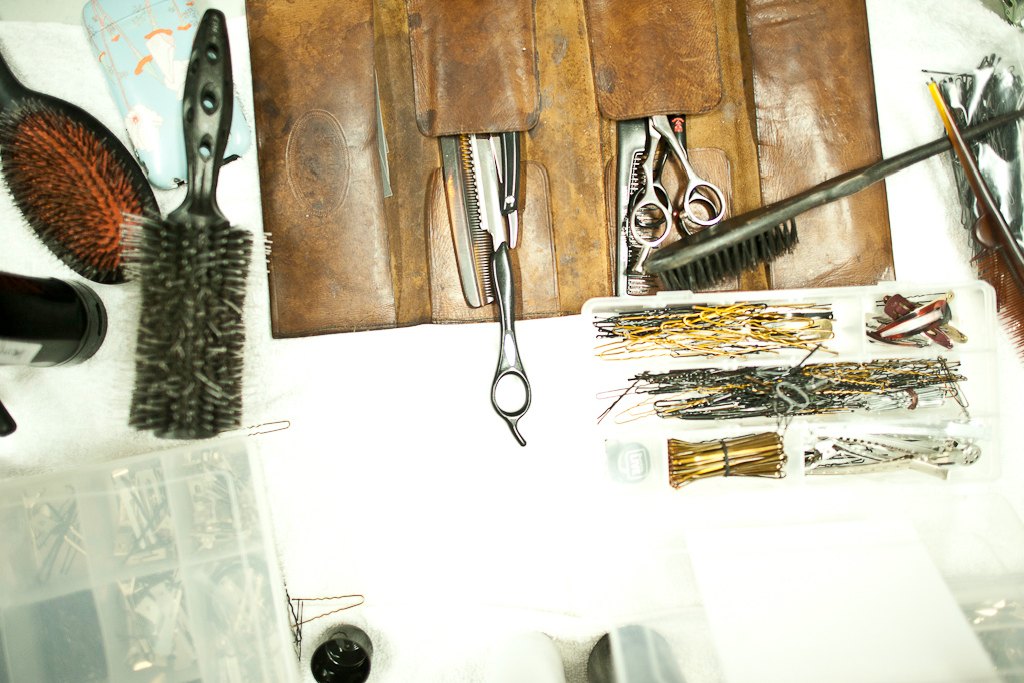
Here’s everything you need to know in order to make your next salon visit in Japan a smooth one!
Basic Vocabulary at Japanese Hair Salon
Nouns
haircut カット (katto)
trim トリミング (torimingu)
layer レイヤー (reiya̅)
shampoo シャンプー (shanpu̅)
color ヘアカラー (heakara̅)
highlights ハイライト (hairaito)
perm パーマ (pa̅ma)
straightening treatment ストレイトパーマ (sutoreito pa̅ma)
conditioning treatment トリートメント (tori̅tomento)
blow out ブロー (buro̅)
blow dry ドライ (dorai)
style setting セット (setto)
curl カール (ka̅ru)
make-up メイク (meiku)
bangs/fringe 前髪 (まえがみ, maegami)
blond hair 金髪 (きんぱつ, kinpatsu)
red hair 赤毛 (あかげ, akage)
brown hair 茶髪 (ちゃぱつ, chapatsu)
black hair 黒髪 (くろかみ, kuropatsu)
Adjectives
thick 多い(おおい, ooi)
thin 少ない(すくない, sukunai)
long 長い (ながい, nagai)
short 短い (みじかい, migikai)
bright 明るい (あかるい, akarui)
dark 暗い (くらい, kurai)
Verbs
*Though there are Japanese verbs that could be used, one simpler way to say something is to take any noun taken from English and add する (suru) to make it a verb. For example:
 
to shampoo シャンプーする (shanpu̅ suru)
to blow out ブローする (buro̅ suru)
to set セットする (setto suru)
to apply make-up メイクする (meiku suru)
…etc.
For more traditional Japanese verbs:
to cut 切る (きる, kiru)
to color 染める (そめる, someru)
to put in highlights ハイライトを入れる (はいらいとをいれる, hairaito o ireru)
to thin out すく (suku)
to add layers レイヤーを入れる (れいやーをいれる, reiya o ireru)
to curl 巻く (まく, maku)
How to Make a Reservation for a Japanese Hair Salon
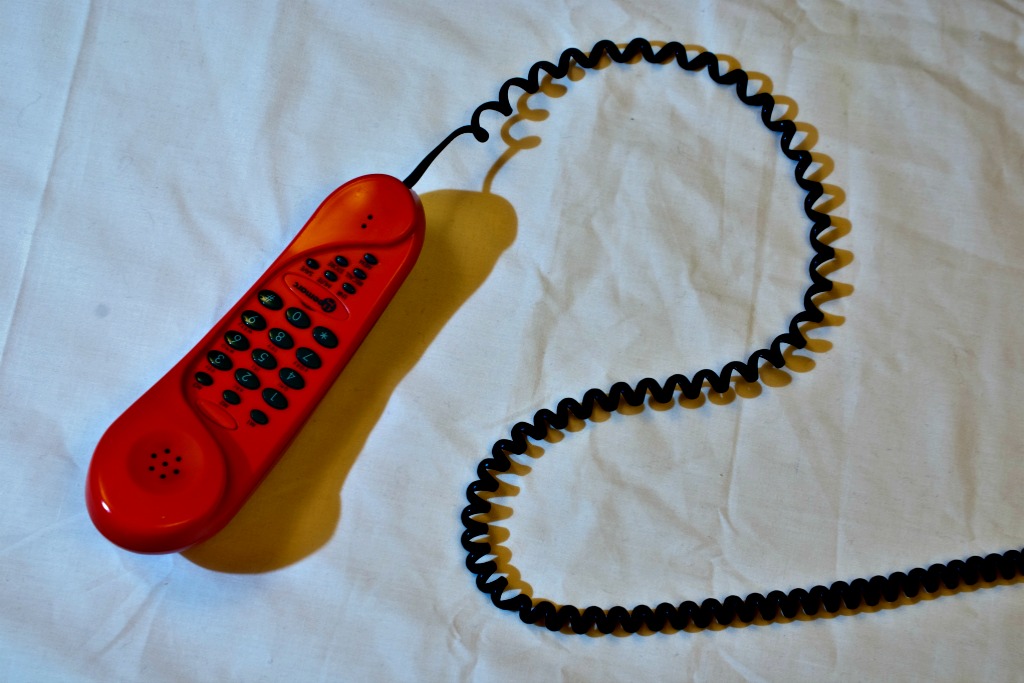 Photo by Iain Watson, Flickr
Photo by Iain Watson, Flickr
*While most salons can accept walk-ins, this isn’t recommended. Especially for tourists here with a limited window of time, it’s much safer to find a salon and to make an appointment beforehand. This can be done by phone or by visiting the salon in person to make a reservation for a later date and time. For those living in or visiting Tokyo, check out tokyobeautystars for bookings, reservations, and special service deals in English.
First, let’s discuss days of the week and times:
Days and Times
Sunday 日曜日 (にちようび, nichiyo̅bi)
Monday 月曜日 (げつようび, getsuyo̅bi)
Tuesday 火曜日 (かようび, kayo̅bi)
Wednesday 水曜日 (すいようび, suiyo̅bi)
Thursday 木曜日 (もくようび, mokuyo̅bi)
Friday 金曜日 (きんようび, kinyo̅bi)
Saturday 土曜日 (どようび, doyo̅bi)
Different salons have different holidays, so it’s a good idea to either check online or ask when they’re closed.
today 今日 (きょう, kyo̅)
tomorrow 明日 (あした, ashita)
9:00 9時 (くじ, kuji)
10:00 10時 (じゅうじ, ju̅ji)
11:00 11時 (じゅういちじ, ju̅ichiji)
12:00 12時 (じゅうにじ, ju̅niji)
1:00 1時 (いちじ, ichiji)
2:00 2時 (にじ, niji)
3:00 3時 (さんじ, sanji)
4:00 4時 (よじ, yoji)
5:00 5時 (ごじ, goji)
6:00 6時 (ろくじ, rokuji)
7:00 7時 (しちじ, shichiji)
8:00 8時 (はちじ, hachiji)
Stating AM or PM and military time is also fine, but it’s not necessary. To make the time between the hour, simply add 半 (はん, han). For example, 2:30 would be 2時半 (にじはん, nijihan).
 Photo by mrhayata, Flickr
Photo by mrhayata, Flickr
Let’s take a look at an example conversation:
*Note: を is traditionally pronounced as wo, but it is currently pronounced o in speech. Either pronunciation would be understood, but the modern pronunciation was used in the following romaji.
Example conversation
Customer: I’d like to make a reservation.
予約したいんですけど…
(Yoyaku shitai n desu kedo…)
Stylist: Okay! What time would you like it to be?
はい、分かりました!何時がよろしいでしょうか?
(Hai, wakarimashita! nanji ga yoroshii desho̅ ka?)
C: Is there an appointment available at 6:00 today?
今日の6時に予約できますか?
(Kyo̅ no rokuji ni yoyaku dekimasu ka?)
S: I’m sorry, but we’re booked during that time. Would you like to book a different time
for today or tomorrow?
すみませんが、その時もう予約があります。今日か明日、他の時間がよろしいですか?
(Sumimasen ga, sono toki mo̅ yoyaku ga arimasu. Kyo̅ ka ashita, hoka no jikan ga yoroshii desu ka?)
C: I see. Then could I make a reservation for 12:30 tomorrow?
分かりました。では、明日の12時半に予約できますか?
(Wakarimashita. Dewa, ashita no ju̅nijihan ni yoyaku dekimasu ka?)
S: Yes, that time is available. What will we be doing?
できますよ!どうされますか?
(Dekimasu yo! Dousaremasu ka?)
C: I’d like a shampoo, conditioning treatment, and a haircut.
シャンプー、トリートメント、カットをお願いします。
(Shanpu̅, tori̅tomento, katto o onegaishimasu.)
S: I have you booked for a shampoo, haircut, and conditioning treatment for 12:30
tomorrow. We’ll be waiting.
明日の12時半にシャンプー、トリートメント、カットですね。それでは、お持ちしております。
(Ashita no ju̅nijihan ni shanpu̅, tori̅tomento, katto desu ne. Sore dewa, omachi shite orimasu.)
During the Japanese Hair Salon Visit: How to Explain Your Wishes

Here are examples of how to inform the stylist about the specifics of your hair and the cut you’d like.
Length
I’d like it about 2 cm shorter.
2cmぐらい切ってください。
(Ni senchi gurai kitte kudasai.)
I’d like my bangs cut a little more.
もう少し前髪を切ってください。
(Mo̅ sukoshi maegami o kitte kudasai.)
I want a short cut.
短くしてください。
(Mijikaku shite kudasai.)
I want my hair shoulder-length.
肩まで切ってください。
(Kata made kitte kudasai.)
I just want a trim.
トリミングだけでいいです。
(Torimingu dake de ii desu.)
Cut to here, please. (Use your hand to show the stopping point.)
この辺まで切ってください。
(Kono hen made kitte kudasai.)
Concerns
My hair is damaged.
髪が傷んでいます。
(Kami ga itande imasu.)
My hair is thick.
髪の量が多いです。
(Kami no ryou ga ooi desu.)
My hair is thin.
髪の量が少ないです。
(Kami no ryou ga sukunai desu.)
Do you think my hair will be damaged if I dye it?
ヘアカラーをしたら、髪が傷みますか?
(Hea kara̅ o shitara, kami ga itamimasu ka?)
How much would it cost to color/perm/straighten my hair?
ヘアカラー/パーマ/ストレイトパーマはいくらですか?
(Hea kara̅ / pa̅ma / sutoreito pa̅ma wa ikura desu ka?)
Which conditioning treatment is best for my hair type?
髪質にどちらのトリートメントの方がいいですか?
(Kamishitsu ni dochira no tori̅tomento no ho̅ ga ii desu ka?)
How long will it take?
どのぐらい時間がかかりますか?
(Dono gurai jikan ga kakarimasu ka?)
During the Japanese Hair Salon Visit: Discuss Hair Designs

Let’s look at some examples of what can arise during a salon visit for various services.
Stylist: What are we doing today?
今日はどうされますか?
(Kyo̅ ha do̅ saremasu ka?)
Haircut
Customer: Can you cut and style my hair like this picture?
この写真のカットとスタイルにできますか?
(Kono shashin no katto to sutairu ni dekimasu ka?)
Do you have any style books or magazines? I haven’t decided.
ヘアスタイルの本や雑誌がありますか?まだ決めてないです。
(Hea sutairu no hon ya zasshi ga arimasu ka? Mada kimete nai desu.)
Do you have a recommendation?
おすすめはありますか?
(Osusume wa arimasu ka?)
What’s the popular style right now?
今、人気のスタイルは何ですか?
(Ima ninkino sutairu wa nandesuka?)
Hair Color
Can I see your color samples?
ヘアカラーのサンプルを見せてください。
(Hea kara̅ no sanpuru o misete kudasai.)
What color do you recommend?
おすすめの色はなんですか?
(Osusume no iro wa nan desuka?)
I’d like blonde/brown/red hair, please.
金髪/茶髪/赤毛でお願いします。
(Kinpatsu / chapatsu / akage de onegai shimasu.)
(Pointing to a sample) I’d like this color, please.
この色がいいです。
(Kono iro ga ii desu.)
Please give me highlights.
ハイライトを入れてください。
(Hairaito o irete kudasai.)
Can you dip-dye my hair?
グラデーションカラーを入れてください。
(Gurade̅shon kara̅ o irete kudasai.)
Perm/Hair Straightening
I’d like a weak/strong perm, please.
ゆるめの/きつめのパーマをかけてください。
(Yurume no / kitsume no pa̅ma o kakete kudasai.)
I’d like waves/loose curls.
ウェブ/ゆるめのカールにしてください。
(Webu / yurume no ka̅ru ni shite kudasai.)
Please only perm sections of my hair, not everything.
全部じゃなくて、ポイントだけでいいです。
(Zenbu janakute, pointo dake de ii desu.)
Please only straighten my bangs.
前髪だけストレイトパーマをかけてください。
(Maegami dake sutoreito pa̅ma o kakete kudasai).
Hair Setting/Make-up
(Showing a picture) Please style my hair like this.
この写真のようにしてください。
(Kono shashin no yo̅ ni shite kudasai.)
I’d like an up-do.
アップヘアスタイルしてください。
(Appu hea sutairu shite kudasai.)
Please blow out my hair.
ブローしてください。
(Buro̅ shite kudasai.)
Please give me a popular style.
人気なスタイルしてください。
(Ninkina sutairu shite kudasai.)
I’d like eyelash extensions.
まつ毛エクステが欲しいです。
(Matsuge ekusute ga hoshii desu.)
(Showing a picture) Please do my make-up like this.
この写真のメイクのようにしてください。
(Kono shashin no meiku no yo̅ ni shite kudasai.)
I want red/pink/matte/glossy lipstick.
レッド/ピンク/マット/グロスのリップでお願いします。
(Reddo / pinku / matto / gurosu no rippu de onegai shimasu.)
 PIXTA
PIXTA
Paying for Your Visit(No tipping in Japan)
 Photo by Philip Taylor, Flickr
Photo by Philip Taylor, Flickr
Please note that not everywhere in Japan accepts credit cards. While the popularity is growing, it is still possible that your salon will only accept cash. If this is an important factor in deciding your salon, it may be better to ask when making the initial reservation.
Customer: Do you accept credit cards?
クレジットカードは使えますか?
(Kurejitto ka̅do wa tsukaemasu ka?)
Stylist: Yes, we do!
はい、大丈夫ですよ!
(Hai, daijoubu desu yo!)
I’m sorry, we don’t.
すみませんが、クレジットカードを受け付けておりません。
(Sumimasen ga, kurejitto ka̅do o uke tsukete orimasen.)
Unlike many Western countries, there is no tipping in Japan! Everything is included in the bill, so just pay and be on your way!
There’s all the basics! Hopefully this is everything you’ll need in order to have a relaxing, enjoyable time at your next salon visit. If you’re not sure about your pronunciation or are maybe afraid you’ll forget, it may be a good idea to print or bookmark this page to take to the salon with you. Better safe than sorry!
